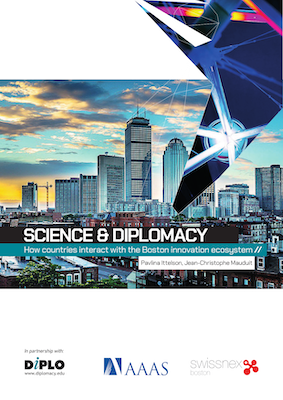Note: This article is a part of the publication ‘Science diplomacy capacity development: Reflections on Diplo’s 2021 course and the road ahead’
The cataclysmic events of the past two years – the devastating COVID-19 pandemic, raging forest fires because of climate change, alarming vaccine inequity – got me seriously thinking about how to use my scientific knowledge for public good.
During the COVID-19 induced lockdown, I wrote an op-ed in the San Francisco Chronicle urging my peers in the scientific community to become ‘social media influencers’. Distressed by the misinformation and disinformation rampant on social media about the coronavirus, I volunteered my services as part of the NSPN (National Science Policy Network) & FAS (Federation of American Scientists) team in “Ask a Scientist”, an interactive tool to help answer the public’s questions on the COVID-19 virus.
However, I was not satisfied. I wanted to reach out to a larger audience as I believe that science plays a pivotal role in solving global challenges pertaining to global health, loss in biodiversity, social injustice, and health injustice through better policy decisions based on sound scientific knowledge. So, when I got to know of this Diplo initiative, I was excited. Diplo’s online course on Science Diplomacy was an ideal opportunity for me to contribute to creating scientific resources, while at the same time learning about Science Diplomacy and cooperation.
I was also enthused by the aim of the course, which is to bridge the gap between scientists, diplomats, staff of international organizations and solve global issues through the practice of Science Diplomacy. I was subsequently selected to write a module on how Science Diplomacy can be put into the service of sustainable development goal (SDG) 3 on good health and well-being. This, I realized, was one of the means for me as a scientist to make a difference on a larger scale.
My expertise in infectious diseases and vaccinology was an added bonus in designing the module and generating content for it. Incidentally, the importance of SDG 3 became more relevant in the midst of a global pandemic. The significance of prioritizing health at an individual, local, state and global level could not have been more apparent. This made the module dynamic as participants were seeing firsthand the intersection between health and diplomacy.
In such a scenario, SDG 3, quite appropriately, was at the forefront of the UN sustainable goals. The course participants got to understand in real time the importance of COVAX (COVID-19 Vaccines Global Access), and how governments and non-profit organizations interact. By assiduously tracking current developments and global news, participants could see science and diplomacy in action, such as negotiations between the World Trade Organization, and countries of the Global North and South regarding COVID-19 patent waivers.
One of the most memorable moments was during our online class discussion, regarding vaccine nationalism and vaccine inequity. We heard that less than 0.9% of the population in Uganda was fully vaccinated, while people in the USA were receiving booster shots. In the same class discussion, we also heard how Taiwan was getting vaccines from different sources to overcome the difficulty of obtaining vaccines. Discussing these examples brought home to the group the enormous inequity in vaccine availability.
Although humanity is at this juncture confronted with a double crisis, a global pandemic exacerbated by the war in Ukraine, I am still optimistic. It has been heartwarming to see Ukrainian scientists being invited by scientists from other countries so that they can continue their research.
I am hopeful in the face of adversity, as I have come across like-minded people who want to use their skills in science policy to mitigate global challenges to benefit humanity.







